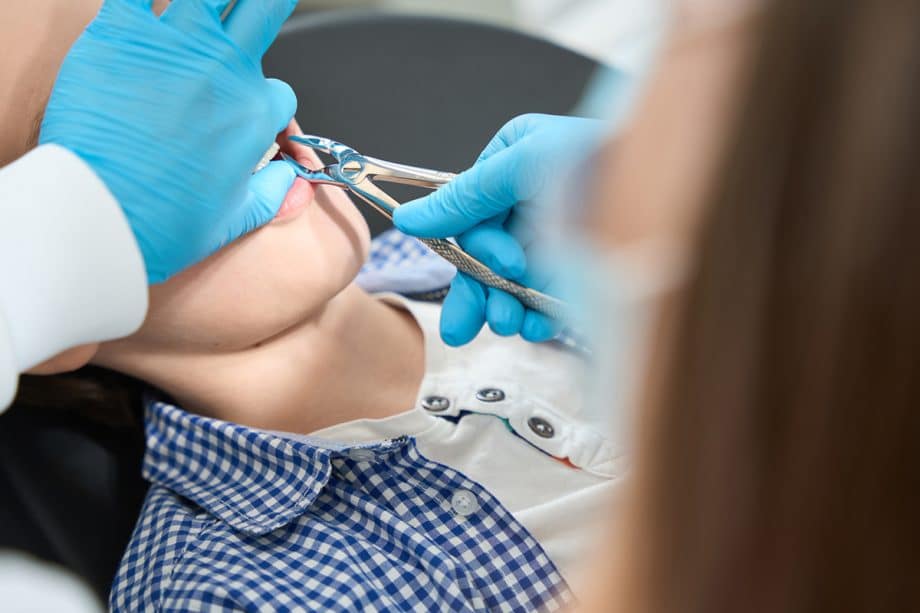Tooth extractions aren’t something anyone looks forward to—but sometimes, they’re the smartest move for your overall oral health. At Upper West Side Oral Surgery & Maxillofacial Surgery, we help patients throughout NYC determine when saving a tooth is possible and when it’s time to consider removal.
Whether it’s due to pain, damage, infection, or crowding, knowing when to act can prevent more serious complications down the road. In this blog, we’ll break down common signs that indicate it might be the right time to get a tooth extracted, along with what you can expect from the process.
When a Tooth Is Severely Damaged or Decayed
One of the most common reasons for extracting a tooth is extensive damage or decay. If a tooth is cracked below the gumline, split in multiple places, or has decay that reaches deep into the root system, it may not be possible to restore it with a filling or crown.
In these cases, leaving the tooth in place can lead to persistent infections or pain. A prompt extraction helps protect your surrounding teeth and tissues—and opens the door for future tooth replacement solutions, such as dental implants or bridges.
When There’s Advanced Gum Disease
Gum disease, especially in its later stages (periodontitis), can weaken the support structures around your teeth. As the jawbone deteriorates and gum tissue recedes, teeth may become loose and unstable.
We often work with patients whose periodontal disease has advanced to the point where one or more teeth no longer have enough healthy bone to remain in place. In those instances, extracting the tooth can alleviate discomfort, reduce the risk of spreading infection, and allow for better management of oral health going forward.
When Wisdom Teeth Are Impacted or Problematic
Wisdom teeth are infamous for causing trouble. For many people, they emerge at awkward angles, press against neighboring teeth, or remain trapped beneath the gums. Impacted wisdom teeth can cause jaw pain, infections, swelling, and even sinus issues in some cases.
If there isn’t enough room in your mouth or your wisdom teeth are causing discomfort or damaging nearby teeth, we’ll likely recommend removing them. Early evaluation, especially in teens and young adults, can help determine whether future extraction will be necessary—and plan the procedure before complications arise.
When Teeth Are Causing Overcrowding or Alignment Issues
Sometimes, teeth need to be extracted to make room for proper alignment. This is often the case in orthodontic treatment, especially when the jaw is too small to accommodate all the teeth without overlapping or crowding.
We collaborate closely with orthodontists to create space and improve bite alignment when necessary. While the idea of removing healthy teeth may seem counterintuitive, it can actually be a critical part of long-term oral health and aesthetics.
Knowing When to Act Can Save Your Smile
Timing matters when it comes to tooth extractions. Waiting too long can allow an infection to spread or worsen bone loss. On the other hand, extracting a tooth too soon without exploring other options may result in unnecessary loss. That’s why it’s so important to work with a team that looks at the whole picture—your pain levels, health history, X-rays, and long-term dental goals.
At Upper West Side Oral Surgery, we offer trusted solutions for dental extractions when they’re truly necessary. And when an extraction is the right call, we’ll make the process as comfortable and predictable as possible, using advanced tools and anesthesia options tailored to your needs.
Frequently Asked Questions About Dental Extractions
Is tooth extraction painful?
Thanks to local anesthesia and modern sedation options, tooth extractions are typically painless during the procedure itself. You might feel some pressure, but you shouldn’t feel sharp pain. Afterward, there may be some discomfort or swelling, but we’ll provide clear instructions—and medications if needed—to help manage healing and recovery.
What should I expect after a tooth extraction?
After your extraction, it’s normal to experience mild swelling, tenderness, and possibly minor bleeding for the first 24–48 hours. We’ll walk you through how to care for the site, what to eat, and when to resume normal activities. Full recovery usually takes a few days, and we’ll schedule a follow-up to ensure everything is healing properly.
At Upper West Side Oral Surgery & Maxillofacial Surgery, we’re committed to providing expert, compassionate care to patients in NYC. Whether you’re dealing with dental pain or planning for orthodontic treatment, we’re here to guide you every step of the way. Contact us to schedule your consultation today.


